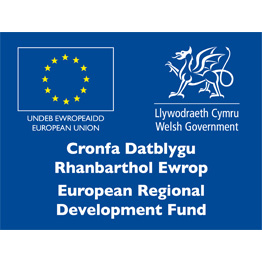Optimising Product Sustainability Results in Increased Sales and Expansion for Frontier Medical
Frontier Medical Group is a market leading manufacturer and supplier of high-quality medical devices to healthcare providers in both the UK and internationally. Frontier has a long history of innovation with its product range including Sharpsafe® – the world’s first purpose-manufactured, disposable plastic sharps container and Europe’s market-leading brand; and Repose® – a range of unique pressure area care devices used in the successful treatment of over 3 million patients in the UK.
Following on from a successful collaboration between Frontier and ASTUTE (2010 – 2015) on Repose® and Frontier’s ongoing focus to remain competitive, utilise new materials and optimise processes, a collaborative Research and Development (R&D) project with ASTUTE 2020 was scoped.
The ASTUTE 2020 researchers and a dedicated team of seven staff members from Frontier aim to deliver the project exploring the development of methodologies for enhanced and sustainable competitiveness in injection moulding, raising Frontier’s process technology readiness level towards TRL 5.
Challenges
Frontier’s products are manufactured to stringent requirements under ISO 13485 for medical devices with significant operating costs attached in terms of labour, materials and energy.
The project’s aim is to examine and optimise injection mould tool cooling while examining the main factory system. ASTUTE 2020 will apply expertise in scientific fundamentals of the moulding process and work with the Frontier team to develop and improve on existing practices and implement process improvements on a specific machine. Concurrently the teams will develop a road map for the rolling out of improved optimised production conditions factory-wide.
- Limited monitoring instrumentation, e.g. installation, unreliable or inconsistent readings.
- CAD files for Moldflow® simulations needed significant modification and upgrading.
- Limited opportunities to make alterations due to part or current mould designs.
Cooling of injection moulded parts can have a significant effect on the end part quality, specifically warpage. Although quality parts are being produced at Frontier there is presently no scientific approach to the monitoring of water flow consumption rates or the relevance of specific temperatures of the majority of individual moulds. The understanding and knowledge of the correlation to heat transfer coefficients are also limited so it is not established if the optimal cooling conditions are in use. However, Frontier is committed to departing from this scenario by introducing and developing a more scientific approach that provides the potential for optimising the process and further increasing product quality where possible and improving manufacturing efficiency.
Anticipated improvements are envisaged that will help towards reaching increased sustainable optimised manufacturing, lowering energy consumption and carbon emissions, reduced material usage, cycle time reduction with improved consistency, quality and understanding.
Solution
ASTUTE 2020’s approach is to investigate and quantify potential benefits through knowledge transfer via round‐table discussions and hands‐on machine trials with data monitoring. Statistical methods for process optimisation and control will be introduced, together with sufficient understanding of the underlying physical phenomena relevant to the injection moulding process.
Experimental trials supported by ASTUTE 2020’s computational simulation expertise should be able to assess the mould and the chiller cooling circuit. This would allow Frontier to make an economic evaluation of modifications to the system with recommendations on continuous monitoring methodology.
Impact
The commitment and collaboration between Frontier Medical and the ASTUTE 2020 team in the initial stages of the project have resulted in the following impact and benefits:
- Investment in a new injection moulding machine equipped with improved data monitoring capabilities and pipe flow monitoring equipment for measuring liquid throughput by Frontier.
- Significant potential for cycle time reduction on other processes - 10% reduction in cycle time on the machine used for the project trials.
- New process improvement methods have reduced some process variabilities and finely tuned areas of the processing window.
- A 10g (4%) reduction in the weight of the component used during the project through the development and fine-tuning of the optimisation process.
- A possible potential for a 20 - 25% reduction in the power consumption of the main cooling water circuit delivery pumps that could represent a saving in the region of £4,000 - £5,000/year in energy charges.
- Bi-directional knowledge transfer for tool cooling optimisation and maintenance.
- With increased sales, additional jobs have been created expanding Frontier’s workforce. Further job opportunities throughout the business are expected to materialise in the coming months.
- Future improved efficiencies are expected to deliver further business growth and assist with maintaining the future UK and international competitiveness.
Additional value to the project has been a dedicated EU-Funded Materials and Manufacturing Academy (M2A) masters student, whose work is complementary to the ASTUTE 2020 project, providing Frontier with additional support while the student is provided with industrial led research training.

